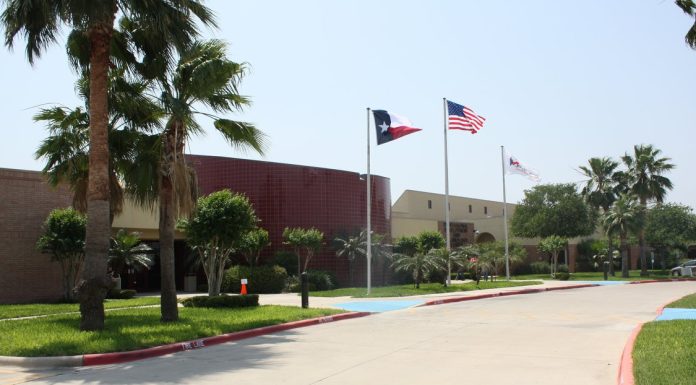
|
Only have a minute? Listen instead
Getting your Trinity Audio player ready...
|
The Region One Education Service Center received $33.6 million to increase the number of low-income students in the class of 2030 at partner school systems across the Valley to enter and succeed in post-secondary education.
The initiative funding comes from the United States Department of Education under the Gaining Early Awareness and Readiness for Undergraduate Programs (GEAR UP) and spans over seven years.
Region One is one of 18 partnerships grantees nationwide for the program. UTRGV also received the partnership.
Through GEAR UP, Region one hopes to impact the lives of about 6,309 seventh graders at partner school systems.
Among the partner school systems in the Valley are the Hidalgo, La Feria, Mercedes, PSJA, Rio Hondo, Roma, San Benito and Santa Rosa school districts.
Melissa Lopez, Region One executive administrator of College, Career & Life Readiness, said GEAR UP follows the cohort of students from middle school all the way to their first year in college, a recent extension of the grant.
“This funding is intended for students that are first generation college going … that are low socioeconomic,” Lopez said. “When you’re the first generation … you don’t have anyone in your family that has gone to college, they really need all the support in terms of exposure.”
As early as seventh grade, students are exposed to the possible career paths and post-secondary opportunities at universities or trade schools that they could attend.
Region One also includes the family of the student by showing them the opportunities that are available to their students and helping the families navigate financial resources available to them.
“They just think college is something we can’t afford so we start early on exposing them to FAFSA, scholarships, grants and just opportunities that are out there because one of the biggest barriers when it comes to our students is not being able to matriculate to college,” she said.
Lopez said GEAR UP has a facilitator at every partnering campus who is reasonable with working with the students.
“In the past when we’ve asked students, ‘What are the top three interventions that GEAR UP has provided to you?’ Overwhelmingly, the students have said, having that GEAR UP facilitator is so important because, again, they have a person that’s assigned just to them,” she said.
Lopez, who has been a GEAR UP facilitator in the past, said the relationship between the facilitator and the student is essential to the success of the program.
“It’s almost like 20 years later and I’m seeing my students as they’re raising their own families and some of them may have nieces and nephews that are part of the new GEAR UP cohort,” she said.
Following students to their first year in college, GEAR UP teaches students how to manage financial aid, management skills and organizational skills.
“One thing that we’ve done in the past, and we’re going to continue doing, is we actually schedule trips where we take the families to go and visit the students, especially those out of the region that may otherwise not be able to go and see their child,” Lopez said.
Region One, which currently serves more than 18,000 students, first received the GEAR UP grant in 1999 and has gone on to impact about 45,000 students.



